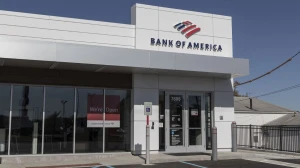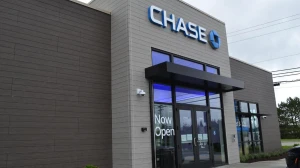
CD Vs High-yield Savings Account: Which One is Better?
High-yield savings accounts provide flexibility, allowing you to access your money whenever you need it, but their interest rates can fluctuate, conversely, CDs offer a fixed interest rate over a set period.
Published Sep 19, 2023 | Updated Sep 19, 2023 | 📖 8 min read
CD vs High-Yield Savings Account
When deciding between a certificate of deposit (CD) and a high-yield savings account, your choice largely depends on your financial goals and how long you can leave your money untouched.
A high-yield savings account offers more flexibility. You can access your money at any time, and the interest rates can fluctuate. It's a good option if you want easy access to your funds and don't want to commit to a fixed term.
On the other hand, a CD provides a fixed interest rate for a specific period, like one or five years. In exchange for locking in your money, you usually get a higher interest rate than what a savings account offers. CDs are ideal if you can afford to set aside your funds for the chosen term and want to maximize your earnings.
Consider your financial goals, liquidity needs, and how long you're comfortable leaving your money untouched to determine whether a CD or high-yield savings account is the better fit for you.
What is a CD?
A certificate of deposit, commonly known as a CD, is a savings account offered by banks and credit unions. When you open a CD, you agree to keep your money deposited in the account for a specified period without making any withdrawals. If you do need to access your funds before the agreed-upon term ends, you typically have to pay a penalty fee to the bank.
When considering a CD, it's important to compare various options, taking into account factors such as the term (how long you're willing to leave your money in the CD), the interest rate you'll earn, and the penalty for early withdrawal. CDs often offer higher interest rates compared to regular savings accounts, making them an attractive choice for individuals who can commit to leaving their money untouched for a specific period.
A CD is a type of deposit account that offers the potential for higher interest earnings but requires you to lock in your funds for a set duration. Early withdrawals may incur penalties, so it's essential to choose a CD that aligns with your financial goals and timeline.
What is a High-Yield Savings Account?
A high-yield savings account is a type of savings account that offers a higher interest rate compared to traditional savings accounts. This higher interest rate allows your money to grow more quickly while it remains in your account. For context, some high-yield savings accounts currently provide interest rates exceeding 5%, whereas the average annual percentage yield (APY) for regular savings accounts is typically around 0.40%.
The interest rate, denoted as the APY, plays a crucial role in determining how much interest your savings account will earn and how fast your money will accumulate. You can also continue to make regular deposits into the account to further increase your balance and the amount of interest you earn.
It's important to keep in mind that the APY offered by high-yield savings accounts can change over time. These rates are influenced by fluctuations in the Federal Reserve's benchmark interest rate.
This means that there may be periods when your earnings are lower, as well as times when they are higher. Nevertheless, even during lower-rate periods, high-yield savings accounts generally provide a better return on your savings compared to traditional savings accounts, while still offering easy access to your funds when needed.
Are CDs FDIC Insured?
Yes, CDs offered by banks are insured by the Federal Deposit Insurance Corporation (FDIC), and those offered by credit unions are insured by the National Credit Union Administration (NCUA).
Both FDIC and NCUA insurance provide coverage for up to $250,000, which means that your CD deposits are protected up to this amount in case the bank or credit union encounters financial difficulties. This insurance helps safeguard your investment and provides peace of mind.
How to Choose Between a High-Yield Savings Account and a CD?
Choosing between a high-yield savings account and a CD depends on your financial goals and how soon you'll need access to your money.
Consider opening a CD if you're saving for a specific short-to-medium-term goal, like buying a house or a car within the next one to two years. CDs typically offer higher interest rates than regular savings accounts, allowing your money to grow faster. However, keep in mind that you'll need to commit to leaving your money untouched for the duration of the CD's term, usually between three months and five years. Early withdrawals may result in penalties.
On the other hand, if you're building an emergency fund, it's best to opt for a high-yield savings account. Emergencies can arise unexpectedly, so you'll want quick access to your funds without worrying about penalties. High-yield savings accounts offer competitive interest rates, and your money remains easily accessible whenever you need it. Therefore, your choice should align with your financial goals and your comfort level with tying up your funds in a CD versus having the flexibility of a high-yield savings account.
High-Yield Savings Accounts and Certificates of Deposit (CDs) Comparision
The choice between a high-yield savings account and a CD depends on your specific financial needs and goals.
A high-yield savings account is an excellent choice if you anticipate needing access to your money in the near future or if you're building an emergency fund. These accounts provide quick and penalty-free access to your funds, making them ideal for unexpected expenses. Look for high-yield savings accounts offered by online banks or credit unions to earn competitive interest rates, which can be significantly higher than the national average.
Consider opening a CD if you're certain that you won't need your money for several months or even years, depending on your financial objectives. CDs often offer higher interest rates than standard savings accounts. To make the most of your savings, explore different CD terms and types to find the one that best aligns with your goals. Keep in mind that some CDs may have rates higher than the top savings account yields, so it's essential to compare options to maximize your earnings.
What are the Pros and Cons of a CD?
Pros of a CD:
- CDs typically offer higher interest rates compared to regular savings accounts, allowing your money to grow faster.
- CD interest rates are locked in for the entire term, protecting your savings from market fluctuations.
- CDs offered by banks are often FDIC-insured (up to $250,000), providing a high level of safety for your investment.
- You can choose from various CD terms, such as 3 months, 1 year, or 5 years, depending on your financial goals.
- With a fixed rate and maturity date, you can easily calculate how much interest you'll earn by the end of the term.
Cons of a CD:
- Once you deposit money into a CD, it's typically inaccessible until the CD matures. Early withdrawals may result in penalty fees.
- CD terms are rigid, making them less suitable for emergency funds or short-term savings.
- While your money is tied up in a CD, you may miss out on potentially higher returns from other investments.
- If market interest rates rise significantly after you open a CD, your fixed-rate CD may not earn as much compared to new CDs with higher rates.
- Some CDs require a minimum deposit, which may be a barrier for individuals with limited funds
What are the Pros and Cons of a High-Yield Savings Account?
Pros of a High-Yield Savings Account:
- High-yield savings accounts offer better interest rates compared to traditional savings accounts, allowing your money to grow faster.
- You can access your funds easily and quickly, making high-yield savings accounts suitable for emergency funds or short-term savings goals.
- Accounts offered by reputable banks are often FDIC-insured (up to $250,000), providing security for your deposits.
- Unlike CDs, high-yield savings accounts don't have maturity dates or penalties for withdrawals, giving you flexibility.
- Your interest rate can fluctuate with market conditions, so you can benefit from rate increases.
Cons of a High-Yield Savings Account:
- While high-yield savings accounts offer better rates than regular savings accounts, they may still provide lower returns compared to certain investments.
- Interest rates on savings accounts can change over time, affecting your earnings.
- Federal regulations limit certain transactions from savings accounts to six per month, which can be a drawback if you need frequent access to your funds.
- Some high-yield savings accounts may require a minimum balance to earn the advertised interest rate.
- If the interest rate doesn't keep pace with inflation, your purchasing power may decrease over time.
CD vs High-Yield Savings Account - FAQs
1. What is a CD (Certificate of Deposit)?
A CD is a savings account with a fixed term and interest rate.
2. What is a High-Yield Savings Account?
A high-yield savings account offers competitive interest rates for easy access to your funds.
3. Which earns higher interest: CD or High-Yield Savings Account?
CDs often offer higher interest rates than high-yield savings accounts.
4. Can I withdraw money from a CD before the term ends?
Yes, but you may face penalties for early CD withdrawals.
5. Are CDs or High-Yield Savings Accounts better for emergency funds?
High-yield savings accounts are better for quick access to emergency funds.




